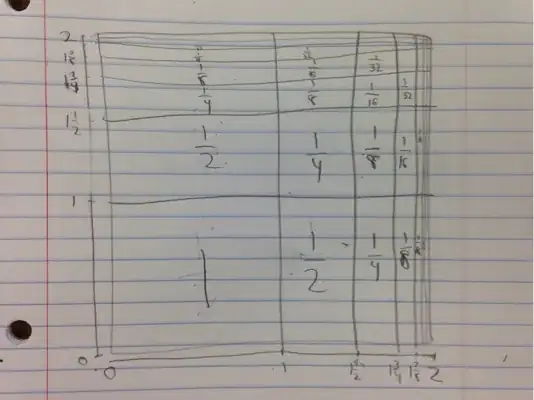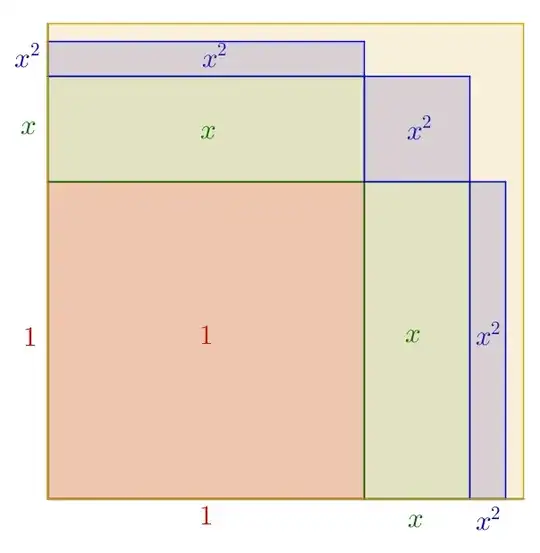Given $|x|<1 $ prove that $\\1+2x+3x^2+4x^3+5x^4+...=\frac{1}{(1-x)^2}$.
1st Proof: Let $s$ be defined as $$ s=1+2x+3x^2+4x^3+5x^4+\cdots $$
Then we have
$$ \begin{align} xs&=x+2x^2+3x^3+4x^4+5x^5+\cdots\\ s-xs&=1+(2x-x)+(3x^2-2x^2)+\cdots\\ s-xs&=1+x+x^2+x^3+\cdots\\ s-xs&=\frac{1}{1-x}\\ s(1-x)&=\frac{1}{1-x}\\ s&= \frac{1}{(1-x)^2} \end{align} $$
2nd proof:
$$ \begin{align} s&=1+2x+3x^2+4x^3+5x^4+\cdots\\ &=\left(1+x+x^2+x^3+\cdots\right)'\\ &=\left(\frac{1}{1-x}\right)'\\ &=\frac{0-(-1)}{(1-x)^2}\\ &=\frac{1}{(1-x)^2} \end{align} $$
3rd Proof:
$$ \begin{align} s=&1+2x+3x^2+4x^3+5x^4+\cdots\\ =&1+x+x^2+x^3+x^4+x^5+\cdots\\ &+0+x+x^2+x^3+x^4+x^5+\cdots\\ &+0+0+x^2+x^3+x^4+x^5+\cdots\\ &+0+0+0+x^3+x^4+x^5+\cdots\\ &+\cdots \end{align} $$ $$ \begin{align} s&=\frac{1}{1-x}+\frac{x}{1-x}+\frac{x^2}{1-x}+\frac{x^3}{1-x}+\cdots\\ &=\frac{1+x+x^2+x^3+x^4+x^5+...}{1-x}\\ &=\frac{\frac{1}{1-x}}{1-x}\\ &=\frac{1}{(1-x)^2} \end{align} $$
These are my three proofs to date. I'm looking for more ways to prove the statement.


